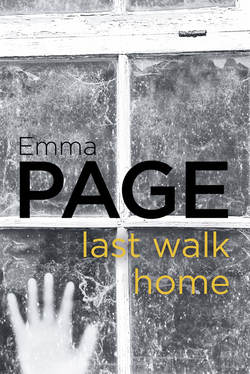Читать книгу Last Walk Home - Emma Page - Страница 10
CHAPTER 5
ОглавлениеEarly on Friday morning, when the horizon was streaked with rose and gold, the first blackbird uttered a soft whistle in the Brookside garden, followed a moment later by a missel thrush. In his narrow bed George Pickthorn heard the sounds in his sleep and smiled with pleasure. In his dream he was running over the common – the old common, the common of his childhood – with his little Jack Russell terrier, dead these sixty years. Some part of George’s waking adult mind leaned into the dream and formulated the thought: I could get a little dog, a Jack Russell, no reason why I shouldn’t have one now, why didn’t I think of it before? I’ll start looking out for one right away.
Along the lane at Rose Cottage, Janet Marshall lay sound asleep in her little bedroom, dreaming she was shut tight inside a box. Outside the box something breathed and panted, trying to get in at her, scratching and tearing at the wooden sides, but she felt no fear, knowing herself safe and snug in her stout little nest.
A mile and a half away, in the best bedroom at Parkwood, Rachel Lloyd lay at ease in the large double bed that had been her parents’. She wore a faint smile on her dreaming face. She was skimming along the fields and hedgerows of the village like a bird, soaring up over the church into the cloudless blue, looking down on the houses and farms spread out below.
Across the landing in the second-best bedroom Henry woke, as always these days, thirty seconds after the first bird uttered its morning note. He had been trying to make his way through a dense black wreathing fog but his feet and legs were weighed down, his arms heavy and powerless.
He came fully awake. Friday, his brain registered, the last day of term. He stared up at the ceiling with its ornate mouldings. How many more terms would he see? Year by year the school roll fell relentlessly. Fourteen years ago there had been three teachers, now there were two.
It was only a matter of time before Longmead went the way of other village schools and closed its doors for the last time. He had no illusions about what that would mean for him. It would be almost impossible at his age to get another teaching job of any kind, let alone a headship.
And in any case Rachel wouldn’t dream of moving away from Longmead. He believed now that she’d never had any such intention, she had merely allowed him to believe she had.
Her parents hadn’t obligingly departed this life as early as he’d been led to expect. They had lingered on into ripe old age and year by year the city headship had receded. It was ten years after the marriage before Rachel’s father died and her mother had finally closed her eyes only twelve months ago; by then it was far too late, the dream was over. All he’d amounted to was the head of a dwindling school in a little village.
He viewed with horror the thought of continuing to live in Longmead after the school finally closed. One by one all the other services and functions of the village would wither and die, Longmead would slide into stagnation and decay.
The rosy visions of expansion had come to nothing, there was no industrial estate, no blossoming of new houses. Already the parish had been amalgamated with that of Stanbourne, there was no resident vicar now at Longmead.
At one time when Henry thought of retirement he had looked forward to it as an exciting, fertile time of life. He saw himself active and energetic, speaking at conferences, lecturing to interested groups up and down the country, writing on educational matters for the national press, being interviewed on television and radio. Now he knew he would simply be stranded here in this tiny backwater, isolated, growing old; nobody would give a damn what he thought about anything.
It was a struggle every morning now to rouse himself to tackle the day’s work. He dreaded to think what his state would be when there was no longer even that regular stimulus to spur him up out of the dark pit.
He threw back the covers and got out of bed, thrust his feet into slippers. When he and Rachel returned from their honeymoon Rachel had firmly indicated that at Parkwood they would occupy separate rooms. ‘In case Mother needs attention in the night,’ she told him. ‘It will mean less disturbance for you.’ Now, as he went silently down the wide staircase, he was deeply thankful that he had his own room and could wander about when restlessness woke him, could read or listen to the radio.
